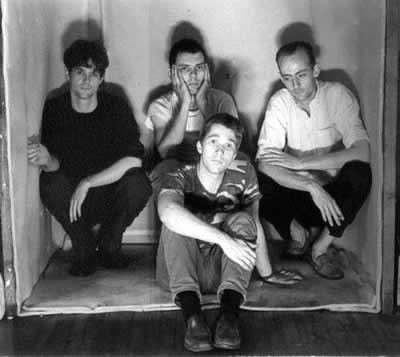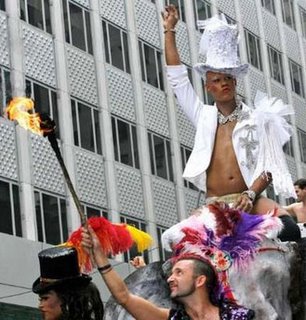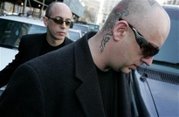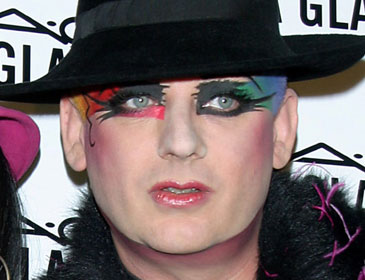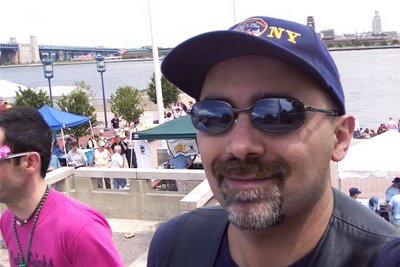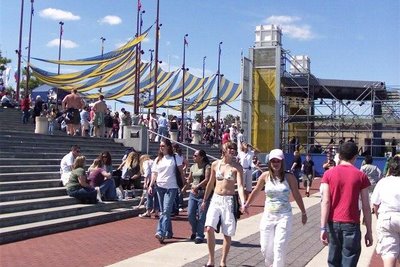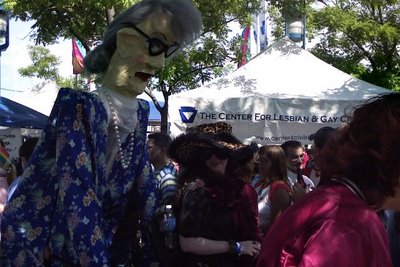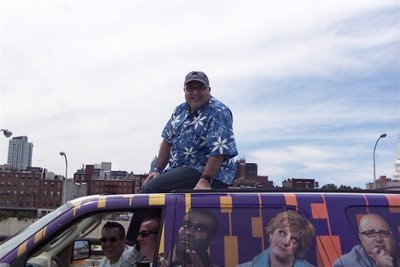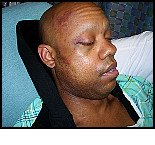
It was five years ago today that
Rufus Wainwright's second album Poses was released. If there was an album that defined the summer of 2001 for me this would be it. I was traveling to New York City quite a bit around that time--taking the train by Manhattan and back, going to gay events there--and that album seemed to be a perfect (pre-9/11) reflection of the city was at that time.
I'd refer to
Poses as Rufus's Summer album (his first four albums each seemed to reflect
a different season of the year). To me the album has a hazy, wistful presence feel about it just like a summer day. I can see the leaves of the trees become full-on green, the increasing sun and heat coming down on the city sidewalks.
Back in 2000 following the critical success of his
debut album, Rufus moved into the imfamous
Chelsea Hotel with a piano and for the next six months wrote songs for the album. He would also go to local places like
the Big Cup where the Cheslea Muscle Boy aesthetic ruled, and he would later milk his clashes with the locals for publicity, such as two Chelsea Boys passing by him at the Big Cup and muttering to him to get a haircut. “A lot of gay people adore my music,” Rufus would later say, “But the Chelsea kind of gay stereotype—that world in general—I’ve always felt sort of out of that world.”
The production of this album, mostly done by Pierre Marchand (best known for working with Sarah McLaughin), is lean in comparison to Rufus's other albums. It's not as flowery and eccentric as his debut album, it's more of a live feel here. But still you can recognize his brand of chamber pop here with its envoloping sound, as on the opening track "Cigarettes and Chocolate Milk." A couple of tracks also add some understated drum loops and gritty beats courtesy of Alex Gifford of the electronica act the Propellerheads, such as on "Shadows."
The theme of
Poses deals with Rufus's exploits in the city as an artist on the verge on fame, where he, as stated in a
2003 interview, "was partying a lot and treating New York as if it was 1927." The asformentioned "Cigarettes" wittily goes on how fun having vices can be, even if they can mess you up. In the poignant and graceful title track, he observes himself trying to keep up with the party crowd and not to be too revealing to others in the process. The sunny poptastic "California" has a satirical edge about the wonders of the fame machinery of that state.
Of note is his cover of "One Man Guy" by
Loudon Wainwright III, his father. The song, originally written about being self-reliant, would add new and different meanings sung by openly gay Rufus. Rufus sings it over a simple accoustic guitar and a fake campfire setting, with his sister
Martha Wainwright, and
Teddy Thompson singing harmonies on the chorus of the recorded version. When the song would be perfomed live, a slightly different approach would be taken by having Rufus, Martha and Teddy each taking turns singing the verses before all joining in on the chorus. These three grown children of the folk movement of the 60s and 70s covering a song by one of their elders would get quite a bit of critical notice by the music press.
A little more than a year after the CD's release, Rufus would going to rehab for drug problems. It's funny yet poigant to now listen to
"Poses" and hear him sing "Baby you said watch my head about it...Oh no oh no no kidding." You get the feeling that while he can get messed up and fall on his ass, there's no doubt that he will get up, take care of needs to be done, and that he'll wind up okay.
(As a postscript,
Poses would be re-issued in Feburary 2002 with an additional track, a remix of his cover of the Beatles's "Across The Universe." IMHO that version is far better than the one that appeared on the
I Am Sam soundtrack; the production of the former doesn't drain the life out of the song like the later had done.)
